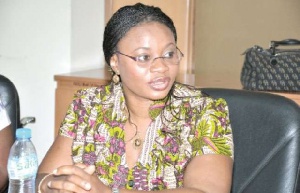The Electoral Commission, Ghana (EC) has begun the implementation of a series of reforms aimed at improving the transparency, inclusiveness and credibility of the upcoming Presidential and Parliamentary elections.
The comprehensive list of reforms, (27 in number), was the product of a Special Reform Committee set up by the EC after the 2012 Election Petition.
The Committee was tasked to synthesize the various reforms proposed by the panel of Justices of the Supreme Courtand political parties.
Membership of the Committee included representatives of the political parties, governance institutions and Civil Society Organisations.
All the reforms proposed by the Committee were accepted by the EC, except two. These were:
1. That membership of the Inter-Party Advisory Committee (IPAC) should be expanded to include CSOs; and
2. That there should be no voting without biometric verification.
The first, was rejected by the EC on the grounds that IPAC should remain the platform for engaging political parties only. The CSOs may continue to attend IPAC meetings as observers but not as members.
On the second, the EC maintained that in the event of a false rejection of a voter by the Biometric Verification Devices (BVDs), provision should be made for manual verification to prevent disenfranchisement of voters by the equipment.
The specific modalities for manual verification in addition to biometric verification are still under discussion at IPAC.
The 27 reform proposalswhich were accepted and are being implemented by the EC are as follows:
1. Hold Presidential and Parliamentary elections in November instead of December.
2. EC to do continuous registration as well as periodic registration.
3. Election Officials & Party Agents to take oaths before a Magistrate or Judicial officer instead of an officer of the Commission.
4. Institutionalize IPAC.
5. Use of the Biometric Verification Device for exhibition of the Provisional Voters Register.
6. EC to raise the minimum educational qualification requirements for various levels of election officials.
7. EC should improve quality of training of election officials and EC staff.
8. PWDs and vulnerable persons should be given priority at polling stations.
9. EC should make clear provisions regarding processes and procedures to be followed upon an adjournment of the poll.
10. EC should improve the Compensation package for Election officials.
11. EC should serially number the statement of Polls and the Declaration of results sheets.
12. EC should set up a National Collation Centre to replace the “strong room”.
13. EC to appoint collation officers for each constituency.
14. EC to defer adoption of electronic voting.
15. EC must ensure that election officials who breached electoral laws are
sanctioned.
16. EC should take steps to reduce rejected ballots.
17. EC should extend the period of notice for Voter Registration exercise from
14 to 21 days.
18. EC should be given the mandate to apply to the courts to delete names of unqualified persons from the Provisional Voters’ Register.
19. EC should be required by law to give a copy of the Final Certified Register to Registered Political Parties at least 21 days before the elections.
20. EC to reduce the number of voters per polling station.
21. EC should publish an annual calendar of its activities at the beginning of an Election year.
22. EC should publish a list of all polling stations with their codes and locations not later than 42 days to the elections. EC accepted 21days.
23. Returning Officers should give copies of Proxy, Special and Absent Voters lists to Candidates/Parties.
24. Returning Officers to issue copies of collation sheets to Candidates/Agents.
25. EC to expand the list of special voters to include accredited media personnel and election observers. GJA to provide the list of accredited media
to the EC.
26. EC to publish Presidential Election Results per polling station on its website.
27. EC to define the term “ordinarily Resident”.
The Commission is of the view that the implementation of this comprehensive list of reforms will make the outcome of the 2016 elections credible and acceptable to all the stakeholders involved.
Politics of Wednesday, 27 April 2016
Source: kasapafmonline.com

















